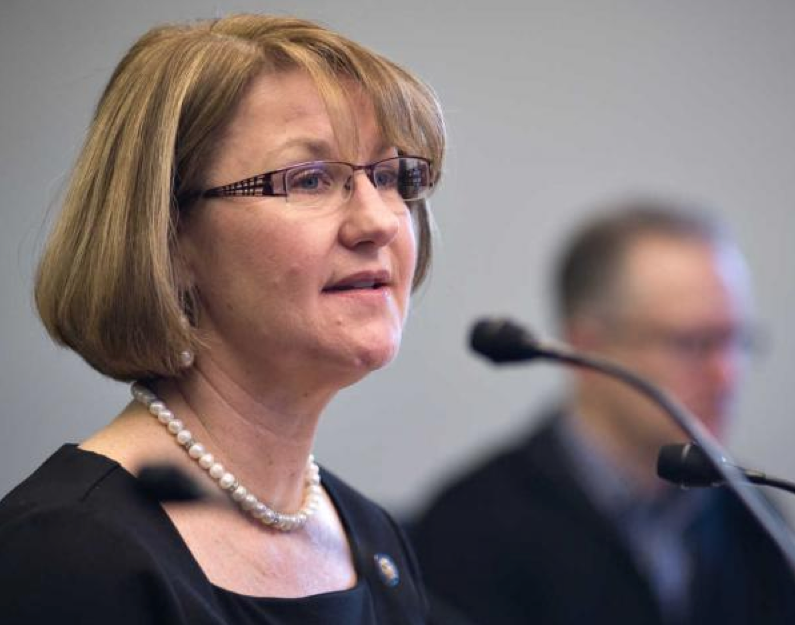The 29th Alaska Legislature will start its fifth special session on Monday, bringing lawmakers from across the state back to Juneau. Don’t expect all of them to stay long.
On Friday, staff of the Senate Finance Committee confirmed that committee will meet in Anchorage after starting the special session in Juneau. Senators will fly to Juneau, do some work on Monday, then fly back to Anchorage to meet, said Laura Cramer, a chief of staff for Sen. Anna MacKinnon, R-Anchorage and co-chairwoman of the finance committee.
Cramer said the finance committee will take up a bill intended to fix a loophole in the state’s oil and gas tax credit program that allows big oil producers to collect subsidies at low oil prices.
“We may continue meetings Thursday and Friday up here as well,” Cramer said.
While Walker decides the location of a special session, individual committees may hold “field hearings” at different locations. If a bill comes to a vote in the Senate, however, lawmakers must return to Juneau to say “aye” or “nay”.
The Senate Labor and Commerce Committee has also scheduled a meeting in Anchorage — at 9 a.m. July 18, one week after the special session convenes.
The House, meanwhile, is expected to stay in Juneau after it reconvenes. The House Finance Committee has meetings scheduled once per day from Wednesday through Friday.
The agenda of the special session is growing as its start approaches. When Gov. Bill Walker called the special session soon after the Legislature failed to raise new state revenue in its fourth special session, he included only three items: Using the earnings of the Alaska Permanent Fund to pay for government operations, reforms to the state’s system of oil and gas drilling subsidies, and a suite of tax increases.
In an opinion column scheduled to publish Monday in the Empire, Walker said he will also include a bill fixing a problem with Senate Bill 91, the comprehensive criminal sentencing reform legislation passed earlier this year.
Walker said he was unwilling to veto the entire bill, and the Alaska governor’s line-item veto power extends only to appropriation items.
The new item would “repeal specific language that could potentially hinder the prosecution of sex traffickers,” Walker wrote. Walker also faces pressure to add a fifth item: health insurance for the spouses and children of police and firefighters who die in the line of duty.
The House passed HB 4002, which would have provided those benefits, during the fourth special session. The Senate failed to take the bill up before lawmakers exited the session.
The deaths of five police officers in a Texas shooting spree has spurred a new call for the bill, and members of law enforcement and firefighters’ associations are urging Walker to add the bill to the special session.
It remains unclear whether lawmakers will vote upon any of the items on the agenda. Rep. Sam Kito, D-Juneau, said he remains optimistic. House Minority Leader Chris Tuck, D-Anchorage, told KTVA-TV that he doesn’t see anything on the agenda that can’t wait until the regular session starts in January.
Rep. Cathy Muñoz, R-Juneau, explained that the first sign of progress may be a vote Monday to resume work where lawmakers left off at the end of the June special session. If that vote doesn’t pass, lawmakers would have to start over on each agenda item, and it would be a significant step backward.
If lawmakers don’t quit early, they will have 30 days to address the items on the special session agenda.

